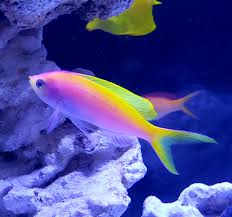Exploring the Influence of the Dragon in Feng Shui Studies in China

In Chinese culture, the dragon is an iconic and powerful symbol, embodying strength, protection, and prosperity. While the dragon is predominantly associated with imperial authority and mythical legends, its influence extends deeply into the practice of Feng Shui, an ancient Chinese discipline focused on creating harmony and balance in the environment. Feng Shui, which translates to “wind and water,” seeks to understand how the flow of energy, or qi, affects individuals and their surroundings. The dragon, with its associations with good fortune, vitality, and protection, plays a significant role in shaping Feng Shui practices aimed at attracting positive energy and ensuring prosperity and well-being.
The Dragon as a Symbol of Vital Energy in Feng Shui
In Feng Shui, the dragon is often seen as a powerful creature that embodies yang energy, which is the active, masculine, and dynamic force of the universe. The presence of the dragon in a home or workplace can promote vitality and strength, encouraging positive energy and prosperity. It is believed that the dragon’s energy can transform the environment by enhancing the flow of qi—the vital life force that governs health, wealth, and harmony.
The dragon is traditionally associated with the east, the direction of sunrise and renewal. In Feng Shui, this alignment reflects the dragon’s ability to bring about new beginnings, positive change, and growth. By harnessing the dragon’s energy, Feng Shui practitioners believe they can revitalize stagnant or negative qi, leading to better fortune and success.
The Dragon and the Water Element in Feng Shui
One of the most significant aspects of the dragon’s influence in Feng Shui is its relationship with water. In Chinese mythology, dragons are often depicted as rulers of water, with the ability to control rivers, lakes, and oceans. This connection between the dragon and water is crucial in Feng Shui, where water symbolizes wealth, abundance, and the flow of qi.
The dragon’s connection to water in Feng Shui is used to enhance the flow of wealth and prosperity. Placing dragon symbols near bodies of water, such as fountains, ponds, or aquariums, is believed to attract positive energy and financial gain. Additionally, the dragon’s association with water can help balance the yin (passive) and yang (active) energies within a space, creating a harmonious environment that nurtures both material success and personal well-being.
In traditional Feng Shui, the dragon is also seen as a protector of the home and family. A dragon placed in strategic areas of the home is thought to guard against negative influences and protect the household from financial loss and misfortune. It is believed that the dragon’s presence helps maintain a stable flow of wealth and energy, ensuring long-term prosperity and peace.
The Dragon as a Symbol of Protection and Good Fortune
The dragon’s protective qualities make it a highly sought-after symbol in Feng Shui. Known as a guardian of treasures, the dragon is believed to safeguard valuable resources, both material and spiritual. Its presence in Feng Shui is intended to protect homes from harmful sha qi (negative energy) and attract auspicious sheng qi (positive energy). The dragon’s fierce nature serves as a counterforce to potential misfortune or disaster, ensuring that the household remains safe and secure.
In addition to its protective qualities, the dragon is often associated with bringing good fortune and success. It is believed that by placing dragon symbols in the appropriate areas of the home or workplace, individuals can attract wealth, career advancement, and overall well-being. The dragon’s association with good fortune is particularly strong in relation to financial prosperity and career success, as the creature is believed to have the power to summon abundance and prosperity.
The Dragon in Feng Shui and the Power of the “Dragon Gate”
One of the most famous Feng Shui concepts related to the dragon is the “Dragon Gate” (Long Men), a metaphorical term used to describe the journey to success and enlightenment. According to legend, a carp that swims through the Dragon Gate waterfall is transformed into a dragon, symbolizing transformation and the attainment of greatness. In Feng Shui, this story is used to represent personal growth, transformation, and the rewards of perseverance.
The concept of the Dragon Gate is often applied in Feng Shui to encourage individuals to pursue their goals with determination and resilience. By placing dragon symbols or images near areas associated with career and personal growth, Feng Shui practitioners believe that individuals can attract the energy needed to overcome obstacles and reach their highest potential. The dragon, as a symbol of transformation, empowers individuals to achieve their ambitions and manifest their desires.
The Role of the Dragon in Feng Shui for Business Success
In the realm of business Feng Shui, the dragon is often considered a powerful talisman for success. By placing dragon figurines or representations in key areas of a business, such as the office or storefront, entrepreneurs believe they can attract wealth, improve business performance, and protect their investments. The dragon’s presence in the business environment is believed to foster an atmosphere of opportunity, ambition, and growth, helping businesses thrive and prosper.
For example, a dragon placed in the southeast corner of an office or retail space, which represents wealth and prosperity in Feng Shui, is thought to enhance financial success and promote positive business outcomes. The dragon’s energy encourages the flow of resources and opportunities, making it an essential symbol for those looking to boost their financial standing and achieve business goals.
The Dragon’s Influence on Health and Well-Being
While the dragon is often associated with wealth and prosperity, its influence extends beyond financial success. In Feng Shui, the dragon also plays a role in promoting health and overall well-being. The energy of the dragon is believed to support vitality and longevity, helping individuals to maintain good health and energy levels. By incorporating dragon symbols into the home, especially in areas linked to health and personal growth, individuals can enhance their physical and mental well-being.
In particular, placing dragons in the eastern part of the home, which is traditionally linked to health and family, is said to promote harmony and balance within the household. The dragon’s energy is believed to strengthen family bonds, improve relationships, and foster a positive, supportive environment for all members.
Conclusion: The Dragon’s Enduring Influence in Feng Shui
The dragon’s influence in Feng Shui is far-reaching and multi-dimensional. As a symbol of strength, vitality, prosperity, and protection, the dragon plays a key role in enhancing the flow of qi, promoting wealth, safeguarding health, and ensuring overall well-being. Whether used to attract success in business, protect against negative energy, or support personal growth, the dragon remains a central figure in Feng Shui practices throughout China.
By harnessing the dragon’s powerful energy, individuals can create harmonious, balanced spaces that support their ambitions and desires. As the dragon continues to inspire reverence and awe in Chinese culture, its influence in Feng Shui will remain a vital part of the practice, helping people to cultivate a prosperous, fulfilling life.

